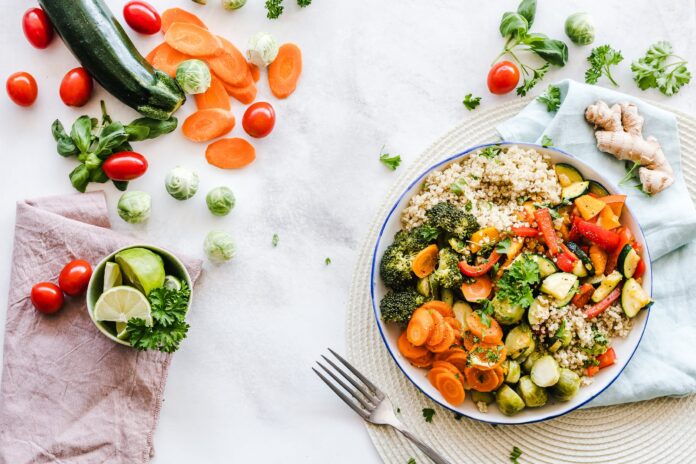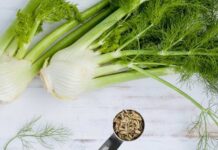One of the many lifestyles people can choose from when it comes to eating is, of course, the omnivore. The omnivore is one of the most basic varieties of vegetarian, a person who eats animal products in moderation. For example, an omnivore might eat dairy, eggs, and meats. An omnivore might also eat fish occasionally, but not on a regular basis. Some omnivores eat vegetarian foods like tofu and seitan, which is wheat gluten.
There are many different diets out there, some of which are very strict and others of which are more moderate. There are those that don’t eat meat, others that don’t eat much meat, and those who are vegetarians. Some claim that eating meat is bad for the environment, while others are concerned about the health and safety of the meat they eat.
There are few things I know for sure (or am at least pretty certain of), but I’m not sure if I’m a flexitarian or a full-on vegetarian right now. I’ve eaten meat for most of my life, but recently have been slowly decreasing my intake (at least in the Western world), so I’m thinking of becoming a vegetarian. I also have thoughts of going completely vegan, but I’m not sure that’s the best option for me.
Oh, the mayhem! My recent vegetarian trial has caused quite a stir. But it isn’t necessary. Indeed, there are some valuable things that both omnivores and vegetarians may learn from each other. Health, performance, and body composition will all benefit from these lessons.
Isn’t it possible for us to all simply get along?
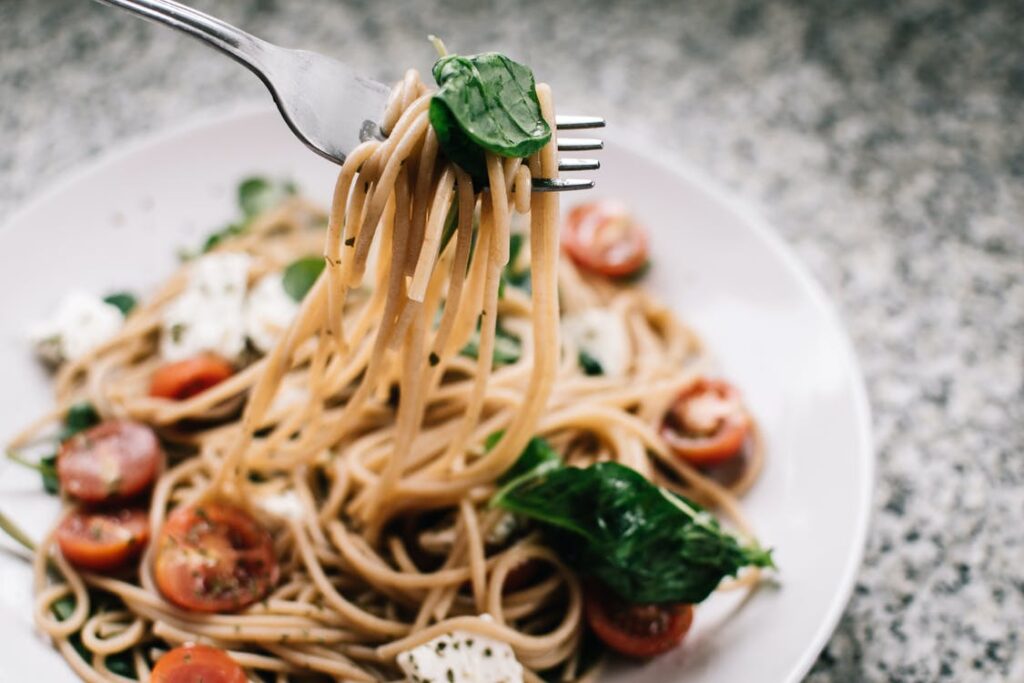
As most of you know, I’m now experimenting with a plant-based diet. In other words, I’m trying to test if an almost-vegan, hypercaloric food plan can help me gain 10 pounds. Of course, I don’t want to gain ten pounds of fat. I’m aiming for a lean physique. And I intend to achieve this aim within the next month or two.
Update after two weeks…
So far, everything has gone well. In the first two weeks, I’ve gained roughly 4 pounds. And so is my pal Lou, the other guy I mentioned in last week’s piece, the scrawny vegan who started it all.
To be honest, I don’t have any body composition data or photos to share with you today. The reason for this is that I’m in Vegas for UFC 94: Penn vs. St-Pierre. GSP, go!
In two weeks, I’ll report back with photos, statistics, and more. That will bring my first month on the program to a close. And this is a fantastic moment for me to do my next round of measurements.
But, for now, rather than discussing my semi-vegan experience, I’d want to explore some of the interesting “conversation” that this small experiment has sparked. And by “conversation,” I mean “carnage.” It’s ironic that I’m writing about this while I prepare for a mixed martial arts battle.
Indeed, one unexpected result of my eating experiment is that certain internet forums are replete with vicious back-and-forth mudslinging between vegetarians and omnivores. And, while people haven’t necessarily treated me horribly, they aren’t being particularly polite to one another.
I can’t help but think that if everyone would simply shut their lips – and open their thoughts for two seconds – they would realize there are a lot of lessons to be learned from one another. However, this isn’t always the case. Instead, everyone is too preoccupied with defending their own point of view. I mean, can’t we just get along?
Vegans can teach meat eaters a lot
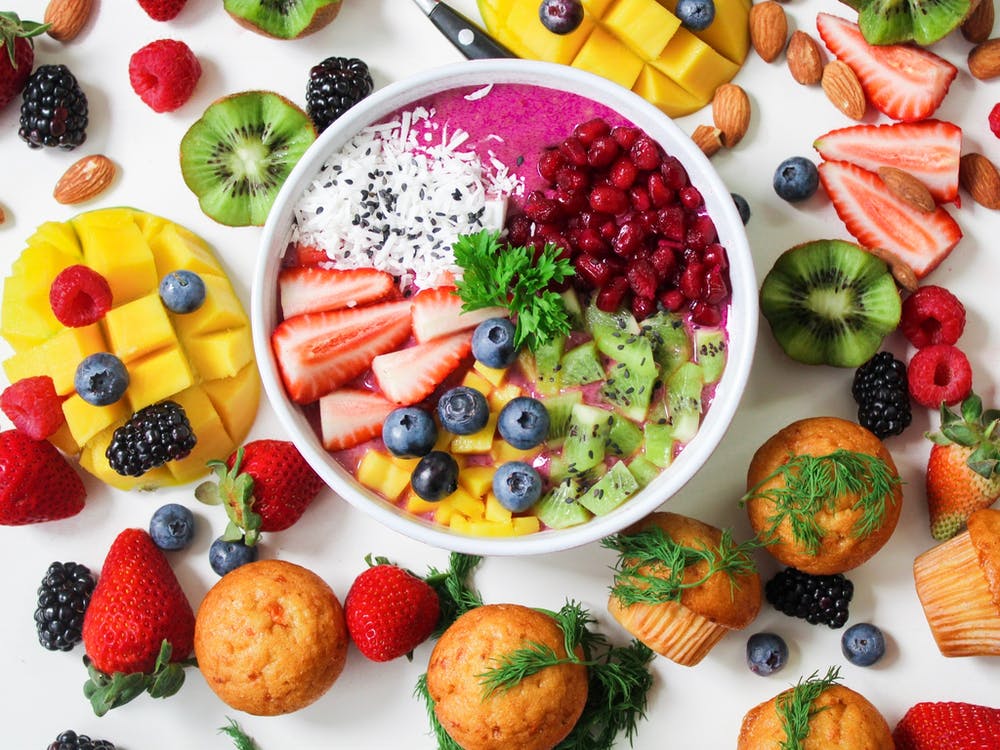
In the spirit of the idea expressed above, I’d like to share a number of lessons I believe meat-eaters can learn from vegans. When I say proper vegans, I don’t just mean people who follow the rules. Those who consume natural, entire foods, you know who I’m talking about. Those who meet all of their nutritional requirements. And those who maintain a healthy and lean physique. Not the ones who simply follow a conventional North American diet devoid of meat.
Here are just a few of them:
Food Prep
Vegans who eat more fruits, vegetables, nuts, and seeds find creative ways to do so. Vegans, in fact, are responsible for some of the best vegetarian cookbooks. Hundreds of recipes for delicious vegetables, fruits, nuts, seeds, and legumes are included in these volumes. They don’t have a choice, you see. That’s all they’re allowed to eat. As a result, they must make it tasty!
We might all benefit from having a few more of these types of recipes in our arsenal. Especially if all you have is a BBQ barbecue for food preparation. So, omnivores, beware. Get yourself an excellent vegetarian cookbook. Also, don’t be afraid to get one produced by a vegan.
Alternatively, you can begin with Gourmet Nutrition V2. I guarantee you’ll learn something new in the kitchen that will help you improve your health and physique.
Foods that haven’t been processed
Vegans eat more complete, natural, locally produced, unprocessed foods than non-vegans. Raw nuts and seeds are examples of this. Quinoa and amaranth are examples of whole grains. And there’s a cornucopia of fruits and vegetables grown right here. That is, once again, all they eat. As a result, they make certain that everything is done correctly.
This is an excellent lesson for omnivores to learn. Sometimes, in our desire to fill 1/3 of our plate with animal flesh, we neglect to consider what should fill the remaining 2/3. And that can be a huge, gut-widening, health-damaging blunder.
Food know-how
Vegans who follow the rules spend more time studying about their food’s origins. To put it another way, they make it a point to know which foods come from which parts of the world, which crops are in season at certain times of the year, and which methods are ideal for growing the healthiest food. This is not only environmentally friendly and healthful, but it’s also really cool to know.
I’ll admit it now. Until I started reading Michael Pollan’s writings, this wasn’t a significant priority for me. However, The Omnivore’s Dilemma and In Defense of Food were both published in the same year. Learning more about our food allows us to make better nutritional decisions for ourselves and the environment. Even if you don’t care for either, you’ll find it fascinating.
Carbohydrates Are Acceptable
Vegans also realize that when carbs originate from whole grain, unprocessed sources and are consumed in moderation, they aren’t so harmful for us. Vegans must, in fact, “travel through carbs” to obtain their proteins and lipids. So they’ve figured out which carbs to eat and how much of each they can handle. And the common conclusion is that things only go wrong when we eat too many processed carbs.
That’s an excellent lesson for meat-loving, carb-averse omnivores. Even though pasta and rice have failed us in the past, some of us can get away with eating more carbs. The goal is to seek out the genuine grains. The stuff that hasn’t been digested. (See our Plant-Based Superfood list on page 14 of the PN Plant-Based Diet Guide for more information.)
Vegans can learn a lot from meat eaters
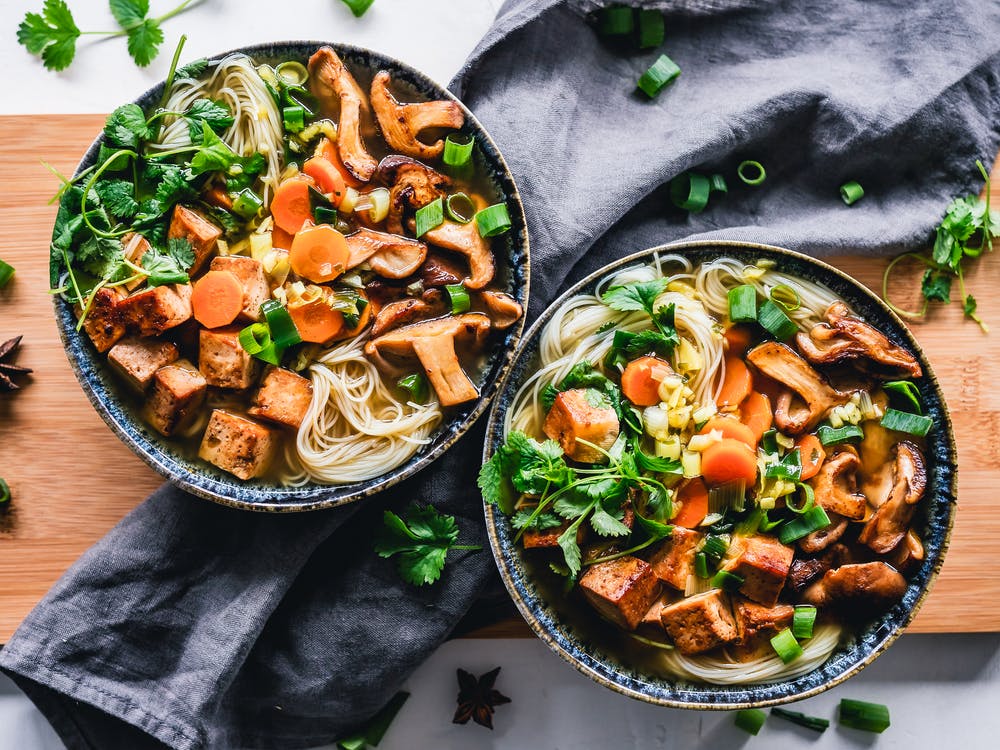
Let’s not exaggerate the vegan lifestyle’s appeal. Many vegans, especially proper omnivores, have a lot to learn from omnivores, in my opinion. Those who eat natural, healthy foods, once again. Those who meet all of their nutritional requirements. And those who maintain a healthy and lean physique. Not the ones that eat fatty fast restaurant meat with processed carbs and gravy on the side.
Here are just a few of them:
Animal-Friendly Meat
Contrary to common vegan assumption, there are some meat eaters who are concerned about animal welfare, the environmental impact of our dietary choices, and our own health and longevity. So it’s not a binary choice. It’s not a choice between eating meat and caring about the environment. It’s not a choice between eating meat and caring about animals. It’s not a choice between eating meat and caring for your body.
Surprisingly, choosing locally sourced, free-range, hormone- and antibiotic-free meat not only benefits the environment and improves animal welfare, but it also benefits our health by delivering all of the nutrients vegans are at risk of lacking — protein, iron, B12, omega 3 fats, and so on.
As a result, this is a lesson that both vegans and omnivores may benefit from. We can be humane, environmentally conscious, healthy, and muscular by eating specific types of meat.
Lifting Weights
Let’s face it: eating beef and lifting weights appear to be inextricably linked. Even if they aren’t, they are well-correlated. It’s probably related to our prehistoric past, when we had to race and lift to collect the majority of our food. Perhaps it’s a social issue.
Regardless, there aren’t many vegans that exercise weights. And it’s a pity. Weight lifting has been shown in studies to enhance lean mass and functional independence as people age, as well as speed up metabolism, lower illness risk, and protect the heart.
Your text will be rewritten by QuillBot. Start by typing or pasting something into this box, then hit the enter key.
That’s right, some vegans are simply too frail. However, there is something you can do to help.
Protein
True omnivores are, undoubtedly, a little obsessed with protein. However, considering the long list of health benefits associated with a diet rich in lean, complete proteins, this could be a positive thing. More lean mass, faster metabolism, and greater muscle preservation. What one wouldn’t want those advantages?
Vegans can miss the boat here, settling for far too little complete protein. And as a result of this blunder, you’ll have subpar health, performance, and body composition.
With today’s dietary knowledge, access to food, and supplement options, there’s no reason you can’t meet a protein intake of 1g/lb, whether the protein comes from an animal or a vegan source.
Indeed, the PN Diet Guide’s pages 6 and 7 as well as the PN Plant-Based Diet Guide’s pages 5 and 6 give thorough listings of protein-rich foods.
Supplements
Vegans, on the other hand, appear to be more hesitant in this area than genuine omnivores who also weight train. That’s a shame, because the lack of meat and fish predisposes vegans to a variety of dietary deficits.
We cover how vegans can incorporate supplements to help prevent shortages in protein (as indicated above), omega 3 fats, vitamin D, B12, calcium, and iron on pages 10 and 11 of the PN Plant-Based Diet Guide.
Other nutritional supplements that can assist both vegans and omnivores are discussed on pages 39-41 of the PN Individualization Guide.
This is where the flexitarian comes in
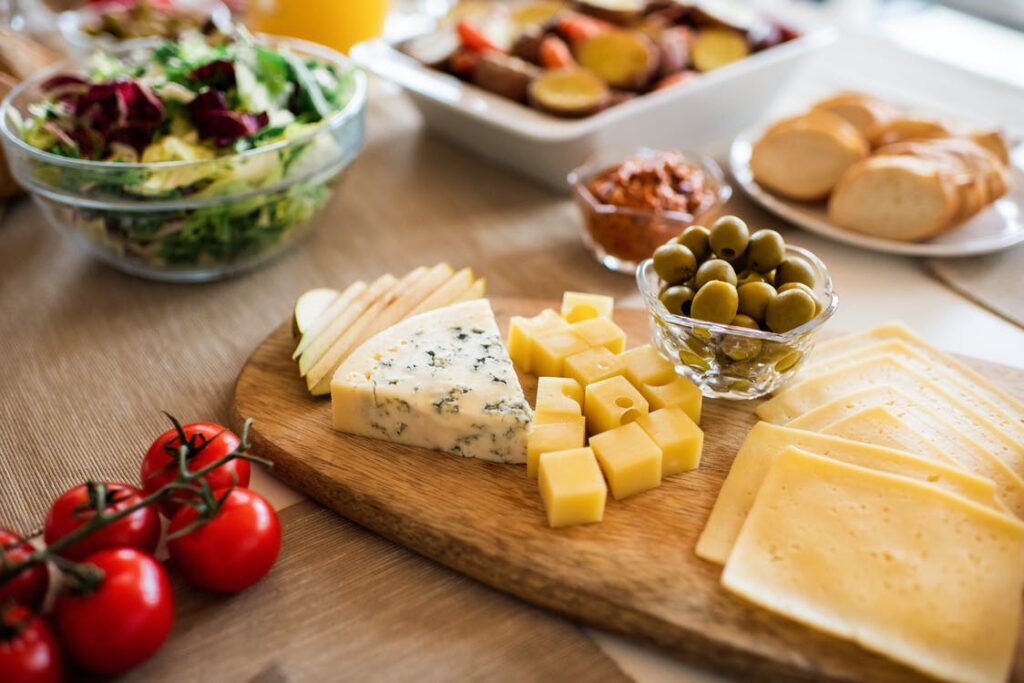
Flexitarian is a new term that has been circulating the internet. According to Wikipedia, flexitarianism is defined as follows:
Flexitarianism is a semi-vegetarian diet that emphasizes vegetarian foods while allowing for the occasional ingestion of meat. A self-described flexitarian tries to consume less meat while not completely eliminating it from his or her diet. There are no rules about how much or how little meat one needs consume to be considered a flexitarian.
Personally, I think the term has a strange ring to it. And I don’t see myself calling myself this in the future. Or you think it’s okay to refer to someone as this.
The concept, on the other hand, isn’t a bad one. Indeed, it might be a very healthy middle ground between a heavily meat-based diet and a wholly plant-based diet. You get the best of both worlds in terms of nutrition. You aren’t omitting any food groups from the menu, which I believe is always a mistake. On the other side, you’re not overeating any one food group, which is a mistake. In addition, you’ll get all of the vitamins, minerals, phytochemicals, antioxidants, vital fatty acids, and proteins your body needs to function properly.
In the world of nutrition, the expression “moderation in all things” is frequently used. However, it’s possible that these flexitarians are the only ones approaching the concept of moderation. They’re trying vegetables, fruits, nuts, seeds, legumes, grains, and, yes, animals from nature’s bounty. And that, to me, appears to be the healthiest diet of all.
Your text will be rewritten by QuillBot. Start by typing or pasting something into this box, then hit the enter key.
To some extent, yes. After all, I only have a few weeks left of this vegan-ish lifestyle.
With this free special report, we’ll help you make sense of it all.
It will teach you the most effective diet, exercise, and lifestyle choices – all of which are unique to you.
To obtain a free copy of the special report, please click here.
I am often asked which diet I follow, and I have to be honest, if pressed, I would probably call myself a flexitarian. A flexitarian is someone who eats some meat, but also usually some plant-based foods, or foods that can be made without animal products, such as beans and legumes, vegan or vegetarian.. Read more about flexitarian vs mediterranean diet and let us know what you think.
Frequently Asked Questions
What can Flexitarians eat?
Flexitarians can eat anything that is not meat, dairy, or eggs.
How often do Flexitarians eat meat?
Flexitarians eat meat on a regular basis.
Are vegetarians skinnier than meat eaters?
Vegetarians are not necessarily skinnier than meat eaters. There is no scientific evidence to support this claim.
